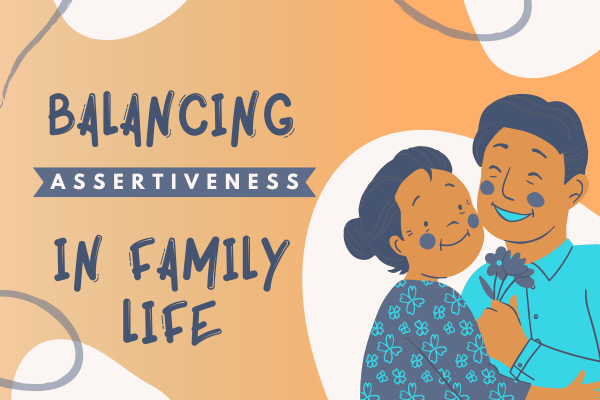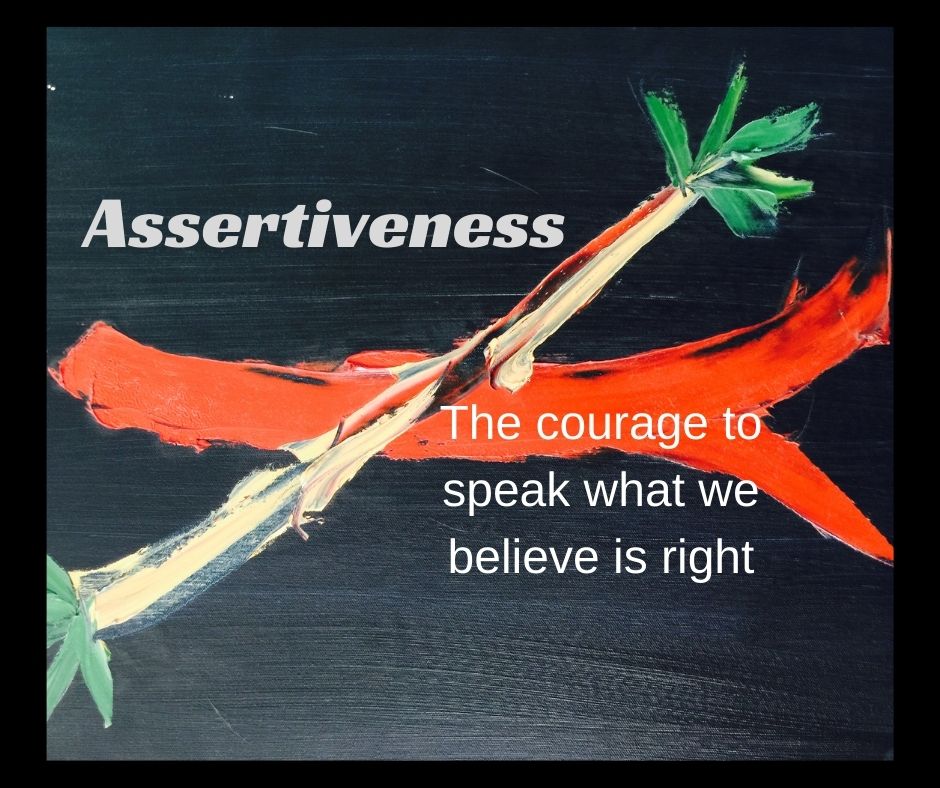
How Married Couples Can Use Assertiveness in a Healthy Relationship
Marriage is often described as a partnership between two individuals working toward shared goals, dreams, and a life of mutual support. However, conflicts can arise even in the healthiest relationships, and miscommunication can lead to tension. One of the key ingredients to maintaining a thriving and balanced marriage is assertiveness. When practiced with love and respect, assertiveness helps couples navigate challenges, communicate their needs, and preserve their individual identities while nurturing their partnership.
In this post, we’ll explore assertiveness, why it’s crucial in a marriage, and how couples can strengthen their relationship and ensure that both partners feel valued, heard, and respected.

What is Assertiveness
Assertiveness is the ability to express one’s thoughts, needs, and feelings clearly and confidently while respecting the rights and needs of others. It’s about striking a balance between being passive (not speaking up for yourself) and being aggressive (trying to dominate others). Assertive communication fosters healthy relationships by creating an environment where both individuals feel heard and respected without fear of rejection or confrontation.
In marriage, assertiveness is about openly communicating your desires, feelings, and boundaries while allowing your partner to do the same. It’s not about “winning” or controlling the conversation but ensuring that both partners can share their thoughts and concerns in a respectful and constructive manner.
Why Assertiveness Matters in Marriage
Many married couples struggle with communication issues, often traced back to passive or aggressive communication styles. A passive partner may suppress their needs to avoid conflict, leading to feelings of resentment and frustration over time. On the other hand, an aggressive partner may try to overpower the conversation, making the other feel disrespected or unheard. Neither approach fosters healthy communication or long-term marital satisfaction.
Assertiveness bridges this gap by encouraging open, honest, and respectful dialogue. When both partners feel comfortable expressing their needs without fear of judgment or conflict, it creates an atmosphere of trust and mutual respect. Here’s why assertiveness is so essential for a healthy marriage:
- Prevents Resentment: When one partner consistently suppresses their needs, it can lead to deep-seated resentment. Assertiveness allows each partner to voice concerns before they build up into larger issues.
- Fosters Mutual Respect: Assertiveness isn’t about forcing your way but respecting your and your partner’s needs equally. This mutual respect strengthens the relationship.
- Encourages Honest Communication: When both partners are assertive, it creates a culture of honesty. No one has to guess what the other person thinks or feels, which minimizes misunderstandings.
- Strengthens Emotional Intimacy: Emotional closeness increases when sharing your feelings and needs openly. Assertiveness helps both partners feel seen, valued, and supported in their emotional needs.
How Couples Can Practice Assertiveness in Marriage
The good news is that assertiveness is a skill that can be learned and improved upon with practice. Here are practical ways married couples can use assertiveness to maintain a healthy and fulfilling relationship:
1. Express Your Needs Clearly
Assertiveness starts with expressing your needs, desires, and boundaries without feeling guilty or defensive. In a marriage, this could mean telling your spouse you need more support with household tasks, asking for quality time together, or expressing when you need time alone to recharge. The key is to be direct but kind. Use “I” statements to take ownership of your feelings rather than placing blame, such as, “I feel overwhelmed when I’m responsible for all the chores,” rather than, “You never help around the house.”
Tip: Practice stating your needs clearly in a calm moment, not when emotions are running high. This helps keep the conversation respectful and focused on solutions.
2. Listen to Your Partner
Assertiveness isn’t just about expressing your own needs—it’s equally about listening to your partner. Active listening is a crucial component of assertive communication. Listen to your spouse’s thoughts or concerns without interrupting or planning your response. Validate their feelings by acknowledging what they’ve said: “I understand that you feel frustrated when we don’t spend enough time together.”
By being an assertive listener, you show your partner that you respect and value their perspective, encouraging them to do the same for you.
Tip: During discussions, take turns speaking and avoid interrupting. This shows respect for each other’s voice and prevents the conversation from becoming one-sided.
3. Set and Respect Boundaries
A healthy marriage requires clear boundaries that allow both individuals to maintain their personal space and identity—being assertive means having the courage to set those boundaries and to respect the boundaries set by your partner. This might involve agreeing on balancing personal time with couple time or setting limits on how to handle disagreements (for example, deciding not to raise your voice during conflicts).
Remember, boundaries are not about creating distance but protecting the relationship by ensuring both partners feel respected and secure.
Tip: Be proactive in discussing boundaries before they become a source of conflict. For example, “I need 30 minutes of quiet time when I come home from work to unwind before we talk about our day.”
4. Handle Conflict With Compassion
Even in the healthiest marriages, conflicts will arise. Assertiveness allows couples to handle these disagreements with compassion rather than aggression. When assertive, you focus on the issue instead of attacking your partner’s character. For example, instead of saying, “You never listen to me,” try, “I feel unheard when I express my needs, and I’d like us to work on improving our communication.”
Approaching conflict assertively, with respect and a solution-focused mindset, allows for growth rather than damage to the relationship.
Tip: If emotions are running too high, take a break before continuing the conversation. Return to the discussion with a clear, calm mind so both partners feel heard.
5. Affirm Each Other’s Strengths
Assertiveness isn’t just about addressing problems; it’s also about recognizing and affirming your partner’s strengths. Be intentional about expressing appreciation for what your partner does well. Whether acknowledging their support, expressing love for how they handle family responsibilities, or simply appreciating their kindness, assertive communication involves positive reinforcement as much as addressing challenges. Notice and acknowledge the virtues they show and how they show them.
Tip: Make it a habit to regularly affirm your partner with specific compliments that show you value their efforts and contributions to the relationship.
The Balance of Assertiveness in Marriage
Assertiveness is about balance—balancing your own needs with your partner’s and balancing honesty with kindness. It allows you to communicate openly and clearly while preserving the love and respect that are the foundations of a strong marriage. When both partners practice assertiveness, they create a relationship built on trust, emotional intimacy, and mutual respect.
By learning to express your needs, listen actively, set healthy boundaries, and handle conflict with compassion, you can maintain a marriage that is not only healthy but also deeply fulfilling for both partners.
Reflection Question:
What is one area in your marriage where you can practice more assertive communication, and how will it benefit you and your partner?
Joe is a husband, father, grandfather, author, speaker, educator, course creator, and parent/family coach.
He helps parents develop unity, find clarity, communicate, and develop consistency in their parenting with the Four C’s of Successful Families. You can find his work on social media.
In addition, the Four C’s newsletter is enjoyed by many as it encourages parents to self-care, build their relationships with their partners, and raise their children.
And he loves to golf!







